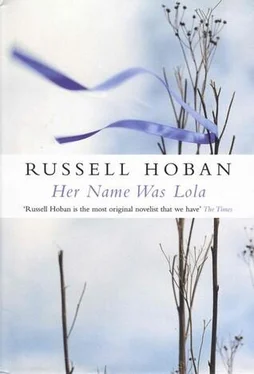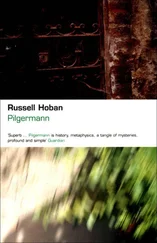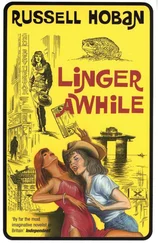‘What else?’ says Charlie.
‘I don’t remember any more just now,’ says Max.
‘Maybe later,’ says Charlie.
‘Yes,’ says Max. ‘Maybe later.’
June 1998. Lola now has a permit to carry a sarod. She’d been lusting for one of her own, and after the first month of lessons Indira is willing to sell her an instrument. Before owning it Lola had thought of names for it: maybe.357 or Clint or Callisto. Now that she holds it in her hands another name comes to mind: Polaris. The star that is the fixed and unchanging North, unlost.
Indira has said that in addition to the lessons she will need to practise for eight to ten hours every day in order to reach the desired level of musicianship. Lola puts in the hours and makes good progress. Hariprasad has given Noah a nakkara, a clay drum with a skin head; and Noah, with a surprisingly good sense of rhythm, does his best to help his mother.
In the daily lessons Indira listens critically. ‘You have advanced faster than any shisyia I’ve ever had,’ she says. ‘Already you are using Kan, Meend, Andolan, Murki , and Gamak. You have musical intelligence, but still the hands are ahead of the heart and the ear is not hearing all that it should. I shall play you a raga of my own composition. It is called “Smriti” , which means “Memory”. This music came to me, I was only the vessel. It came through me but not from me. Do you understand the difference?’
‘Yes,’ says Lola.
‘Listen,’ says Indira. She begins to play and sing. The music calls up in Lola the memory of her time with Max. The astonishment of love and the joy of it. The bitterness of his betrayal. The wonder of Noah. The times that have been and the times that might have been. As Lola listens she loses all track of time. She has no awareness of how long the music has been going on. The music is now and the times remembered are now. She weeps, adding her voice to the voices of Indira and the sarod. The music and the singing stop. When Lola is able to speak she says, ‘Yes, that’s how it is.’
‘Whatever you heard,’ says Indira, ‘was in the music. I did not create the music. I am the vessel only. The music came through me and I did not interfere with it. I think you will understand this with your head but will your heart understand it? Will your hands understand it?’
‘Yes,’ says Lola. ‘I will learn to be the vessel only.’
September 1998. Interesting, thinks Lola, how rage and delight can live side by side in her. Rage at Max, delight in their child. Indira’s teaching has had something of a civilising effect on her. Now when she thinks of Max she tries to consider his actions more calmly, more objectively than before. But no matter how hard she tries, the enormity of his behaviour still hits her like a two-tonne safe dropped from a tall building. How could he say what he said, do what he did, be as he was with her when he was, as far as she knew, being the same with Lula Mae Flowers? Even the woman’s name was a joke. That he should get Lula Mae pregnant while doing the same to her, Lola! How did his mind work, that he could do that? As if she, Lola, were no one special. She who had given him her whole heart, her unconditional love, by the seven stars of Ursa Major and the Hale-Bopp comet. Would the hurt and the anger ever go away or would they grow with time to fill her soul with blackness?
But even while she thinks this her hands, calmer and more peaceful, draw from the sarod the notes of Indira’s ‘Smriti’. Lola’s voice rises in her to join the sarod. The good moments she remembers, are they truly false or falsely true? Do they flicker like flecks of gold in the bed of time’s river? Gold then and gold now? Sifting these grains of the past tires her. The music is coming through her as it had come through Indira. She is the vessel only. The music is more than she is. Noah is crooning softly. The music is coming through him as well.
December 1998. Lola, always interested in place names, has learned by now that the Deil’s Hurdies, the cleft formation sticking out of the sea, is (are) the Devil’s Buttocks. The Teeny Titties, two small finials of rock near the shore, would be Little Sisters in English. Kirsty’s Knowe (Knoll), a grassy hill overlooking the sea, has attracted her because of its story. An old man, a retired fisherman, has told her that the eponymous Kirsty hanged herself when her lover deserted her. He drowned soon after. Since then an apparition called Kirsty’s Fetch was said to be seen on Kirsty’s Knowe by men fated to drown.
‘Has anybody seen it recently?’ Lola asked.
‘Not that I know of,’ said the old fisherman. ‘People don’t see as much as they used to. I blame the television.’
Kirsty’s Knowe has become a favourite walk of Lola’s. She looks out to sea and listens to the sighing of the waters. She never sees the ghost of the long-dead girl but she often talks to Kirsty.
December 1998. Max and Harold Klein at The Pickled Pelican, drinking Pedigree without Glenfiddich. They want to reach unconsciousness (whether ambulatory or horizontal) more slowly than the last time. ‘I hate these cutesy pub names,’ says Klein. ‘Why couldn’t they call it something straight, like The 14 Bus?’
‘You ever heard of a pub named after a bus?’ says Max.
‘No, but I’m sure it deserves to be celebrated as much as the dukes and duchesses you usually see on pub signs.’
‘This one used to be The Princess Royal,’ says Max.
‘There you go. But don’t distract me.’
‘Sorry. You were saying.’
‘I was saying the 14 bus. Let’s drink to it.’
‘OK. The 14 bus!’ says Max.
‘The 14 bus!’ says Klein. Clink. ‘Not that drinking to it helps.’
‘I’m not with you,’ says Max.
‘Of course not. We’re all alone. The red keeps changing.’
‘The red?’ says Max.
‘The red of the bus. Something is building up in that old Routemaster. Some intention rising from the deep like the Kraken. Hop on, hop off indeed. As if!’
‘As if what?’
‘As if your destiny were something you could hop on to or off.’
‘Do you have to take the 14 often?’ says Max.
‘Not very. Actually the danger is minimal when I’m a passenger. The thing takes on a new complexion when I’m on foot.’
‘Redder?’ says Max.
‘Different,’ says Klein. ‘You can’t tell what they’re thinking.’
‘Treat the 14 as you would a hostile dog,’ says Max. ‘Don’t show fear. While staying out of its way, of course.’
‘Easy for you to talk,’ says Klein. ‘Why aren’t you at home grinding out your next novel?’
‘Some grinds are slower than others,’ says Max. ‘There are times when I find it difficult to concentrate on the writing.’ He takes a photograph out of his wallet and shows it to Klein. ‘Here’s the latest of my son Victor. He was a year old last November 28th.’
‘William Blake’s birthday,’ says Klein.
‘Jean-Baptiste Lully’s also,’ says Max. He and Klein think about this while working on their third pints.
‘He certainly doesn’t look Jewish,’ says Klein.
‘His mother’s genes seem to have been dominant,’ says Max. ‘People that see him say “Ah!”’
‘Does he talk?’ says Klein.
‘Not yet. Lula Mae says he appears to be thinking about what to say first,’ says Max.
‘Cautious,’ says Klein. ‘Probably just as well. Have you been to Texas for a visit?’
‘Not so far.’
Читать дальше












